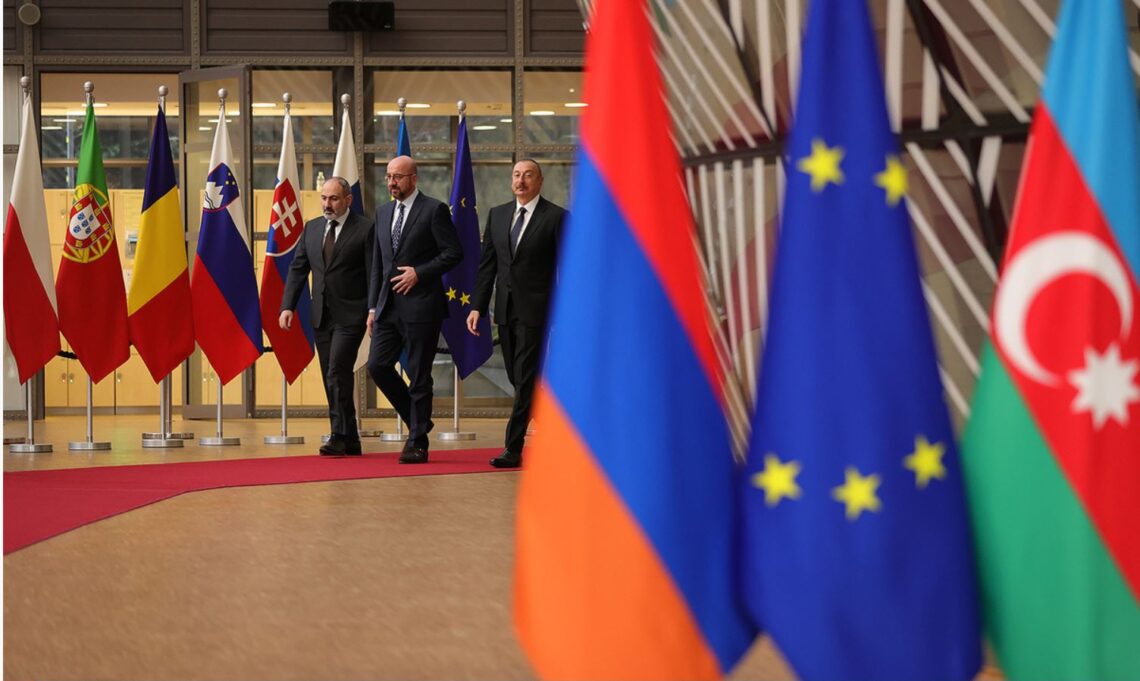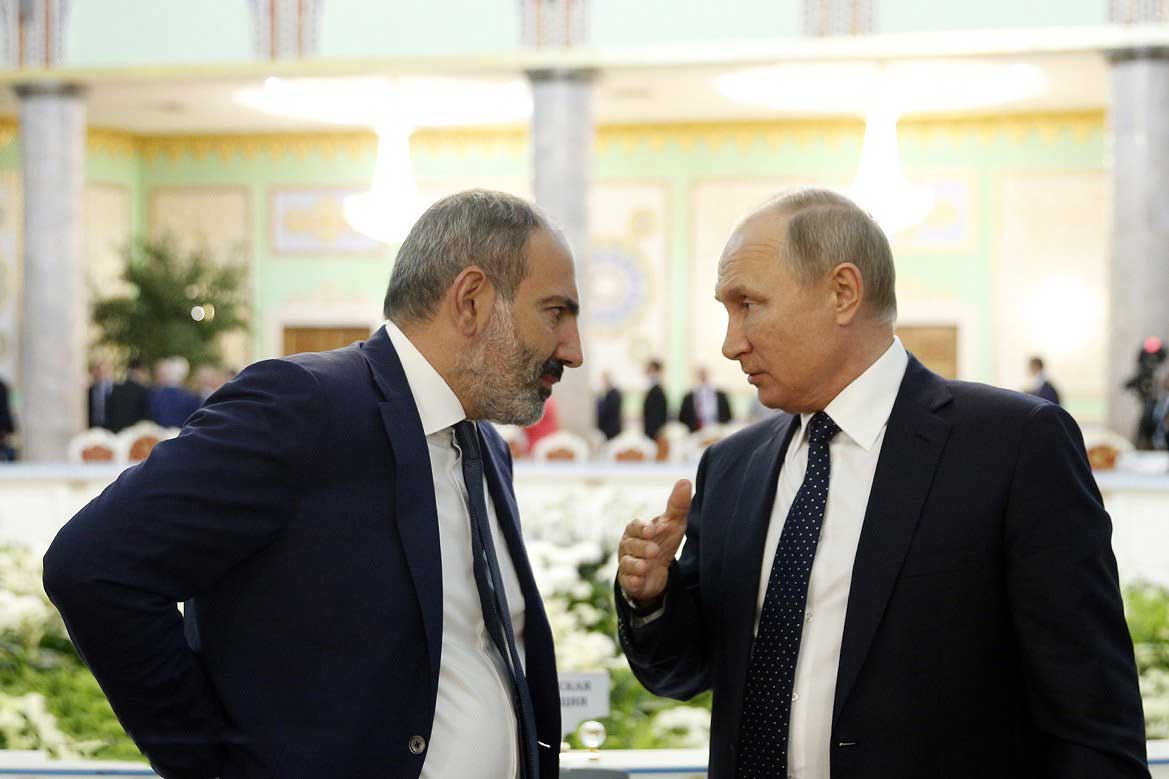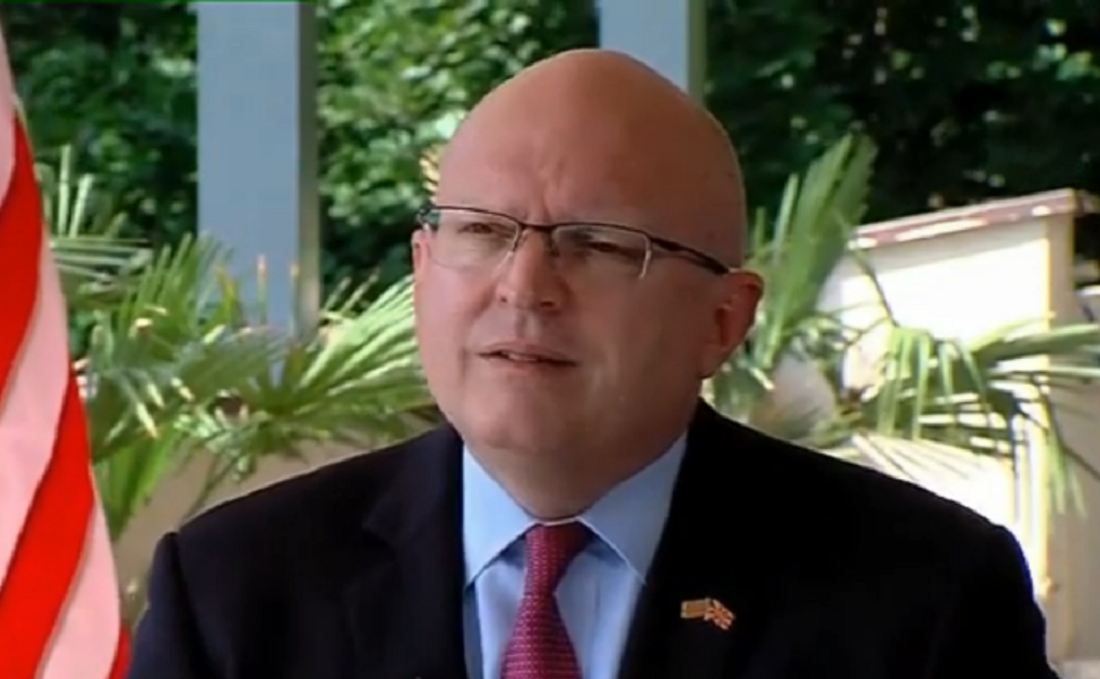Signing of a peace treaty "within a few months"? Opinions from Yerevan
Peace treaty Armenia-Azerbaijan
After the Brussels talks between Nikol Pashinyan and Ilham Aliyev, the possibility of signing a peace treaty with Azerbaijan is being discussed in Armenia.
Recently, the Azerbaijani president said this could be done “within a few months.” Armenia immediately reacted to this statement as an attempt to “ignore the Armenian point of view” and “a reason to doubt the sincerity of Azerbaijan’s intentions to achieve peace.”
How Armenia reacted to Aliyev’s statement, and the comments of analysts from Yerevan.
- “The death penalty is for high treason.” Is the Prosecutor General of Armenia’s proposal legal?
- “The fate of hundreds of missing persons remains unexplained” – Armenian Foreign Ministry
- “The rich don’t have to serve in the army?” – a new project of the Armenian Defense Ministry under scrutiny
“Peace agreement should be based on five basic principles” – Aliyev
“I believe that we can prepare and sign a peace agreement within a few months,” the President of Azerbaijan said in an interview with the Italian newspaper Il Sole 24 Ore.
According to Aliyev, the most important outcome of the negotiations in Brussels is an agreement on a meeting of foreign ministers “with a view to starting practical negotiations related to a peace agreement.”
Aliyev said that the document would be based on five basic principles proposed by Baku.
Aliyev did not mention Armenia’s proposals, only noting that Armenia accepted the principles of Azerbaijan.
On March 10, 2022, Azerbaijan submitted a five-point proposal to Armenia, comprising mutual recognition of territorial integrity, the rejection of territorial claims, the demarcation of borders, the establishment of diplomatic relations and the unblocking of transport routes.
Since March, Armenia has repeatedly and at the highest level stated that there is nothing unacceptable in the proposals, but they “do not affect all issues of the comprehensive Armenia-Azerbaijan peace agenda.” For Yerevan, the security of the Armenians of Nagorno-Karabakh, the observance of their rights and freedoms, and the determination of the final status of NK, are also matters of principle.
“We are ready to continue peace talks with an amended agenda” – Mirzoyan
Aliyev’s statement was immediately followed by the reaction from Yerevan.
Armenian Foreign Minister Ararat Mirzoyan commented on “some speculation” regarding the latest meeting in Brussels. Mirzoyan, once again, confirmed that there is “nothing unacceptable” in Azerbaijan’s proposals for the Armenians, but they do not cover all issues of the Armenian-Azerbaijani agenda.
“With our response forwarded to the OSCE Minsk Group Co-Chair countries, we completed the agenda, and on that basis we are ready for the continuation of peace negotiations.”
According to the minister, Armenia confirmed this position during the Brussels meeting:
“Not listening or trying not to listen to this position gives Armenia a reason to question the sincerity of Azerbaijan’s intention in achieving peace. Moreover, the continued arbitrary and false interpretations of the negotiations and the avoidance to fulfill the agreements give the impression that Azerbaijan intends to undermine the peace process and continue its policy of ethnic cleansing through the use of force.”
The day after the Pashinyan-Aliyev-Michel trilateral talks, the Armenian Prime Minister stated that “the discussion was extensive, not easy.” Nikol Pashinyan stressed that Armenia’s goal remained the same – the fulfillment of the peace agenda:
“We all need to understand that this is not easy, possible solutions are not obvious. We must continue consistent work in this direction. And I think it is a necessity, it is the desire of our people, that a lasting and comprehensive peace be established in our region.”
Comments
Political observer Hakob Badalyan does not think it likely that a peace agreement will be signed in the near future, due to disagreements between Armenia and Azerbaijan on key issues, in the geopolitical situation, and the different interests of larger powers. According to Badalyan, it is no secret that the latters’ strategies significantly influence the development of the South Caucasus.
“If work begins on the text of this agreement, substantive discussions on the agreement will begin – this will already be progress. We see that talks about an agreement began a long time ago, but it didn’t take off just like that,” Badalyan told JAMnews.
He finds it difficult to say when the signing of a peace treaty will be possible. He believes that the situation is more significantly influenced by the events in Ukraine, the “theater of military operations”, rather than the Armenian-Azerbaijani issue.
On the subject of Baku’s position, which ignores the Armenian proposals, Badalyan emphasizes that Azerbaijan will try to achieve the maximum by all possible means. The same, in his opinion, should be the approach of Armenia:
“You should be guided by hypothetical versions, allow possible attempts to pressure, be ready to resist them. Given the possibility of pressure attempts in the form of military blackmail, it is very important for Yerevan to strengthen its internal defense capabilities.
We must try to neutralize the risks of possible pressure on the diplomatic front as well. The process of the Armenian-Turkish resolution should also be considered an important direction in this sense.”
According to political scientist Benyamin Poghosyan, the work on the peace treaty and the meeting of foreign ministers were also discussed after the meetings in Brussels. He sees no serious progress since the Pashinyan-Aliyev-Michel meeting on 31 August.
In support of this, Poghosyan went through the texts of Charles Michel’s statements after the meetings on April 6, May 22 and August 31.
As he sees it, it turns out that the parties first spoke of a peace agreement at a meeting on April 6, noting that in the near future the foreign ministers with their teams will start working on the text of the document. After this meeting, the heads of the foreign ministries of Armenia and Azerbaijan contacted each other by phone several times, but met only once on July 16 in Tbilisi.
“Given that just two weeks after this meeting we witnessed a military escalation, the July 16 talks can hardly be considered a great success,” said Benyamin Poghosyan.
Poghosyan comes to the conclusion that although the peace treaty has been discussed for four or five months, no serious progress has been observed.
“In a pure content analysis of Charles Michel’s statements, in my estimation, the least progress, if any at all, was made during this meeting.”






















